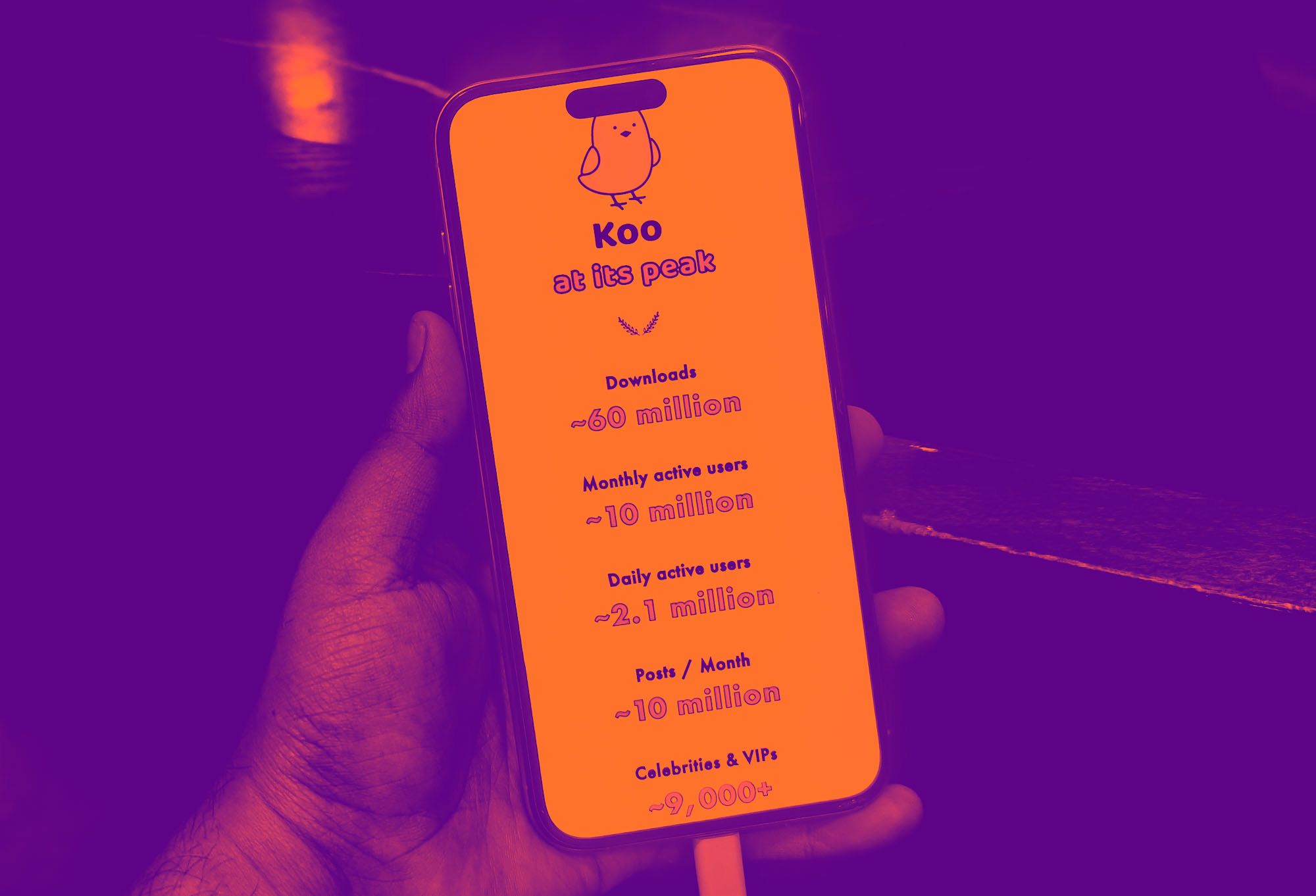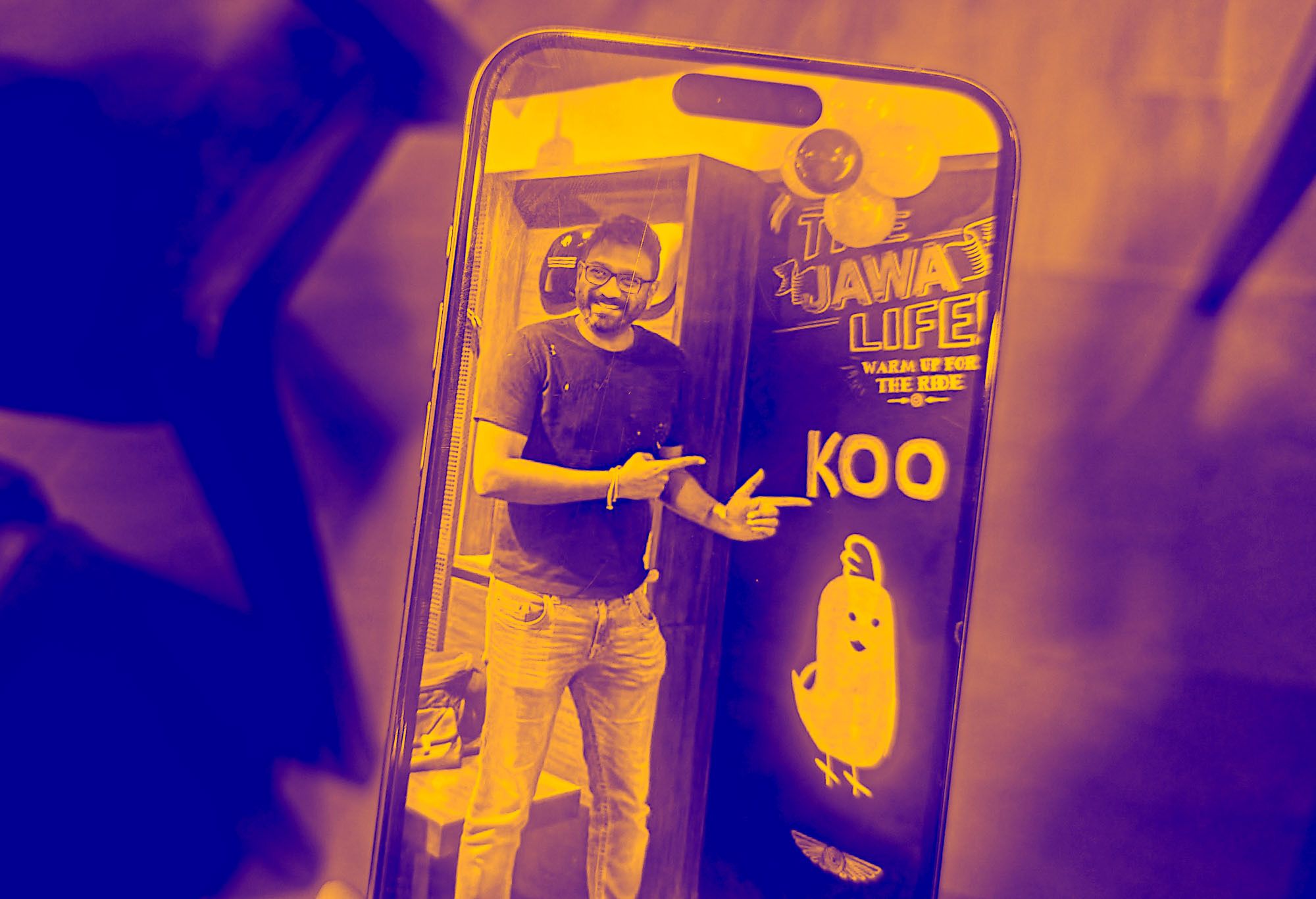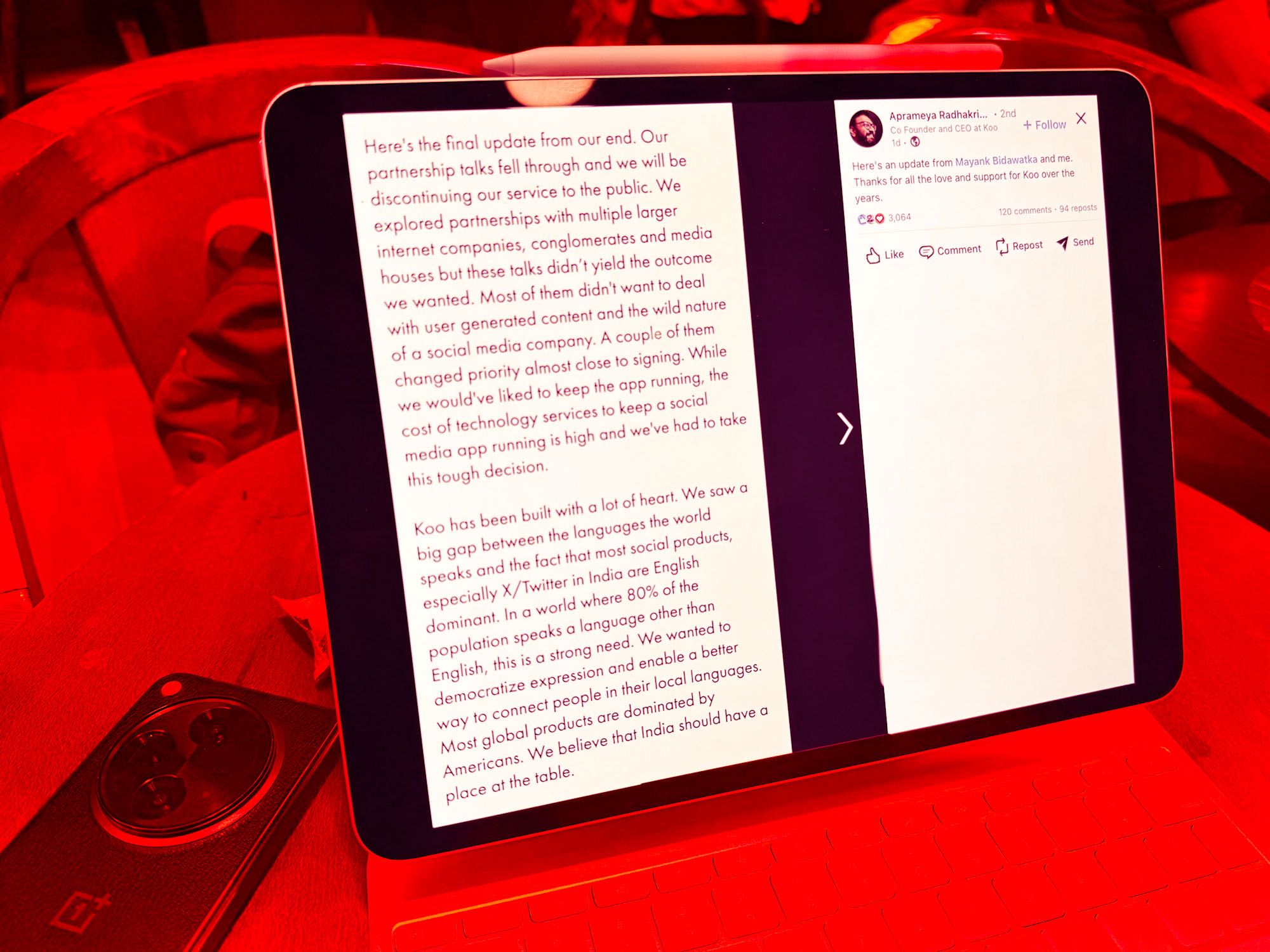Over the past couple of days, social media has been abuzz with the demise of a social media platform. Koo, once hailed as India’s own rival to 𝕏 (previously Twitter), announced that it is shutting doors. So far, the platform had accumulated roughly 60 million downloads, which is no small number.
Naturally, the venture capital and desi entrepreneur bois on 𝕏 cried a healthy few tears, and of course, wrote threads, explaining why Koo failed. Well, the writing had always been on the wall.
Imagine you build a media app, selling the promise of platforming hundreds of millions of Indians speaking a few dozen languages, creating probably the most diverse pool of social media chatter bugs.
It’s a different matter that you literally copied Twitter’s blue bird, gave it a poopy yellow color (oh, come on!😷) and launched it as a desi Twitter challenger.

Okay. Let’s start on a less intense note. It’s a bit boring, but will serve well to showcase the fundamental failures at Koo, in the context of another social media titan, Meta.
In its 2022 report, Meta’s Oversight Board — in the Indian context — “raised concerns about whether Meta has invested sufficient resources in moderating content in languages other than English.”
Internal material accessed by The Wall Street Journal revealed that over 90% of content moderation at Meta was focused on North America. It’s quite funny because Facebook and Instagram have the combined highest number of users in India, which speaks a heck ton of languages, and not just English.
Furthermore, the company has been brazenly shifty on the vile stuff its platforms have facilitated in India. All that, despite Meta shareholders asking the company to be transparent and reveal what it has done to address human rights and hate speech related issues in non-US markets, like India.
“In India, for instance, Meta has repeatedly refused to publish the full human rights Impact assessment report it conducted on its preparedness for the country’s ongoing 2024 elections,” notes AccessNow.

Now, let’s shift back to Koo. Back in 2021, Koo founder and CEO told the Economic Times that the company has six moderators for Hindi content, the most widely spoken language in the country. As per the 2011 Census, over 40% of India’s speak Hindi.
When Koo was on a rise and had clocked over 3 million downloads, riding on top of endorsements from top politicians and union ministers, Koo didn’t have a public content moderation policy, as per Forbes.
Read that again. By the way, the CEO also accepted that Koo was a bit leaky with user data. They didn’t have something as basic as two-factor authentication for account security. But despite all its flaws, it was getting some sweet, sweet political love.
Koo even received praise from Prime Minister Modi on his arguably "much-loved" podcast. Then it inked a deal with Republic TV, one of the India's biggest media players, which was also fined for broadcasting hate speech and ranked among the biggest spreaders of misinformation.

Article 14 found that Republic chief Arnab Goswami’s name is routinely used to spread hate and propaganda to millions on Facebook users in the country. Goswami’s Islamophobia and political sycophancy have been well documented, by the way.
The choices made by the top brass at Koo reflected on how the platform fared with its unique flavor. A joint investigation by the Internet Freedom Foundation and Global Witness highlighted Koo’s failure at handling hateful content, removing only a quarter of the posts flagged.
BuzzFeed reported that Koo is home to rampant Hindu nationalist rhetoric and unchecked anti-Muslim speech targeting India's largest minority, propagated by ardent government loyalists. But that’s not even the most shocking part.
“We won’t take action against something just because we feel like it. It will be taken based on the laws of the land,” said Koo’s founder and chief when asked about it. Mind you, this is the app that won the Indian government’s local innovation challenge.
When Rest of World grilled the founder on Koo’s moderation problems and the kind of content that is flourishing on the platform, here’s what he said:
“No, you’re randomly putting words in my mouth. I’m not enjoying this conversation.”
Now, that was not the only problem behind the app’s failure. As this report by Rest of World highlights, trying a Twitter copycat formula — and throwing in support for Indian languages as the key USP — wasn’t really a bling-bling formula for growth.

Koo reached a peak valuation of around $285 million and expanded to nearly 300 employees, while active users touched a high of ten million. Yet, failure to monetize meaningfully, despite launching premium and creator-centric tools, Koo failed to move the dial financially at a meaningful scale.
Crucially, it missed the mark at touching social media’s biggest success mantra — going viral. By the end of 2022, layoffs began and the decline continued. Cofounder Mayank posted on LinkedIn recently that the company was eyeing strategic investors to get out of a startup winter.
Paycheck cuts happened, and employees were informed that their salaries will now be paid only when a partnership materializes, and they get a cash injection, according to a LinkedIn post by cofounder Mayank Bidawatka. Unfortunately, Koo failed to find a buyer.
Koo’s demise, more than anything, is a lesson for India’s aspiring social media entrepreneurs. Its CEO posted on LinkedIn that they needed more time to flourish. Despite having one of the world’s biggest digital denizen and a massive user base easy to onboard, converting them into an audience ain’t easy.
And certainly not, when your platform gains infamy for all the wrong reasons, being out of touch with something as crucial as developing original features, and failing at the holy rule of social media — keep the content blast in check, or at least pretend to show that you’re trying your best.
No country for Koo birds!

